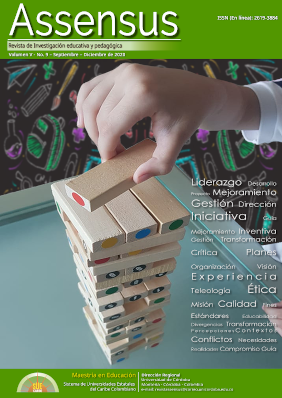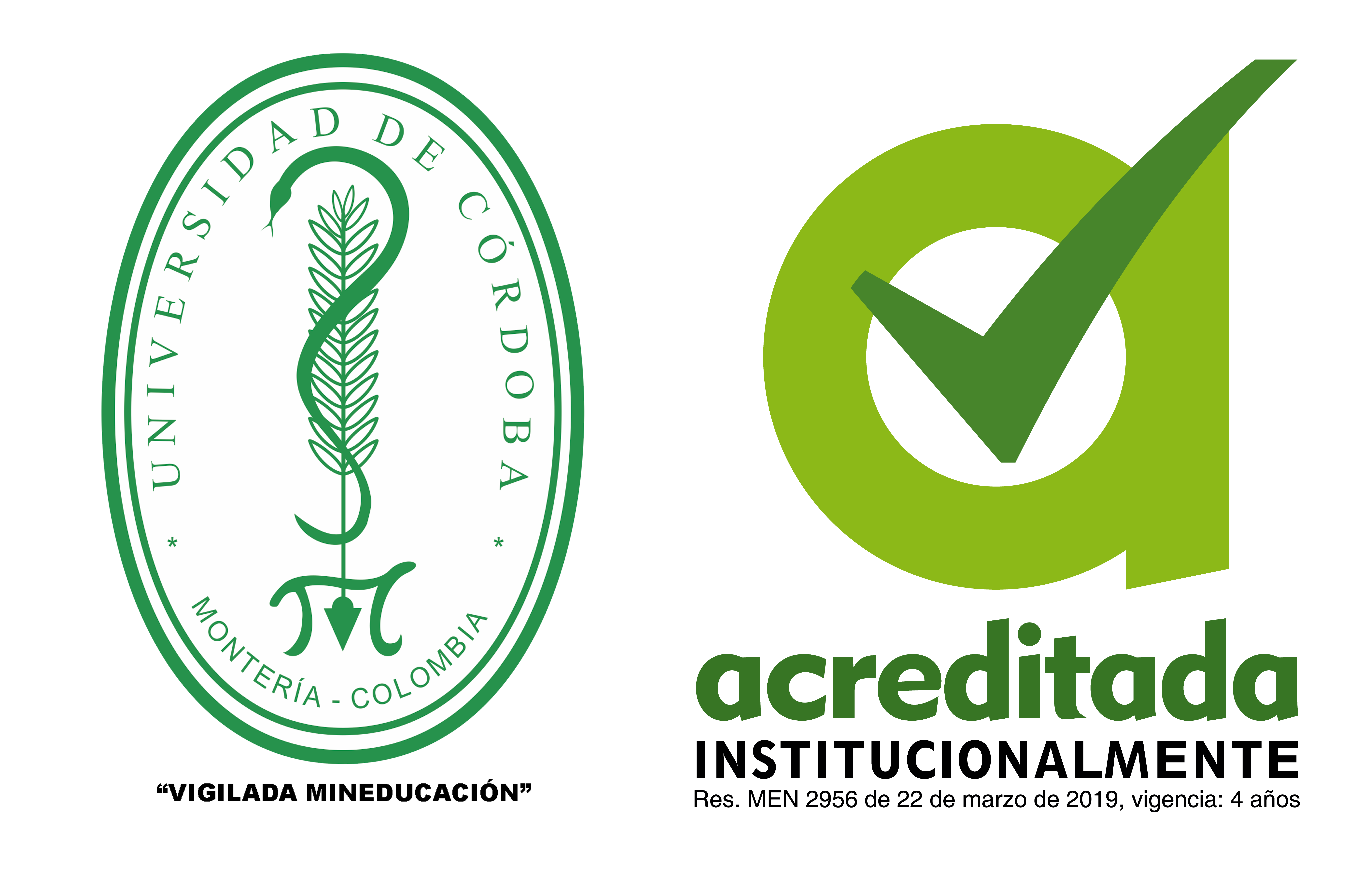Reading and Writing Skills through a ubiquitous and collaborative learning system
Las competencias de lectura y escritura a través de un sistema ubicuo y colaborativo de aprendizaje
The Assensus journal has a Creative Commons license. The citation, use and partial or total reproduction of the contents is authorized by citing sources. For more information, see https://creativecommons.org/licenses/by-sa/4.0/deed.en
Show authors biography
This article shows the results of the research that had the objective of evaluating the incidence of the implementation of a ubiquitous and collaborative learning system, in the strengthening of the reading and writing competences in the 9th grade students of the Antonia Santos Educational Institution. A methodological design of evaluative research was applied - evaluation of educational programs, where the effects of a language program designed with Dee Fink's Taxonomy of Significant Learning, centered on goals and skills that the student should develop at the end of the formative process on his strengthening in the communicative competence of reading and writing. The research involved a diagnostic phase, a program design phase, a program implementation phase, and an evaluation phase of program implementation. The results obtained reflected that there was improvement in the communicative competence of reading and writing, in comparison with the diagnostic test applied at the beginning of the school year. Finally, it is viable to consider that it is indispensable to understand that reading and writing are the main training tools for understanding the world, being able to interact and solve problems in diverse disciplinary and sociocultural contexts.
Article visits 809 | PDF visits
Downloads
- Aguirre, P., Hidalgo, H y Ramírez, T. (2015). Los Modelos Tecno-Educativos, revolucionando el aprendizaje del siglo XXI. México: Creative Commons.
- Bárcenas Morales, M., Mercado, P., & Carrascal Torres, N. (2019). Mediaciones Tecnológicas para el desarrollo de la competencia semántica comunicativa- lectura inferencial en básica primaria. Assensus, 4(6), 27 - 43.
- Biggs, J. B., Kember, D., & Leung, D. Y. P. (2001). Cuestionario revisado sobre procesos de estudio dos factores: r-spq-2f. Universidad de Hong Kong.
- Burbules, N. (2014). El aprendizaje ubicuo: nuevos contextos, nuevos procesos. Argentina: Curriform publica.
- Camargo, P. (2014). Las TIC como herramientas facilitadoras en la gestión pedagógica. Disponible enhttp://yicelagomezgallego.blogspot.com/2015/09/lastics-en-el-ambiente-escolar-usode.html.
- Camps, A. (2003). Miradas diversas a la enseñanza y el aprendizaje de la composición escrita. Lectura y vida, 1-11 Recuperado de http://www.lecturayvida.fahce.unlp.edu.ar/numeros/a24n4/24_04_Camps.pdf.
- Cassany, D. (1999). La cocina de la escritura. Barcelona España: Editorial Anagrama.
- Cerda, H. (2011). Los elementos de la investigación como reconocerlos, diseñarlos y construirlos. Bogotá: Editorial Magisterio.
- Coto, M., Cordero, C y Mora, S. (2017). Tendencias de investigación en el aprendizaje ubicuo: un micro estudio de publicaciones seleccionadas del 2000 al 2015 Costa Rica. creativa (notas a mano alzada)” https://revistas.uptc.edu.co/revistas/index.php/la_palabra/article/view/9537/7937 Colombia.
- Ferreiro, E. (2007). Procesos Iniciales de la Lecto-Escritura. Obtenido de Procesos iniciales de la lecto - Escritura: https://andrechile.wordpress.com/2007/08/22/procesos-iniciales-de-la-lecto-escritura.
- Hernández Mena, A., & Merlano Tous, N. (2018). Dinámicas de apropiación social de las TIC y su impacto en las comunidades educativas. Assensus, 3(5), 87-100.
- ICFES. (2015). Cuadernillo de prueba Primera edición. Lenguaje Grado 9º. Bogotá D.C
- IFCES. (2017). Resumen Ejecutivo en Colombia PISA 2015. Recuperado de: http://www.ICFES.gov.co/documents/20143/237304/Informe%20resumen%20ejecutivo%20colombia%20en%20PISA%202015.pdf.
- Navarrete, L., & Vargas, J. (2016). Lectura y Escritura: una propuesta de intervención meta cognitiva desde los entornos digitales. In Actas del 3er Simposio Internacional y 4to Coloquio Regional de Investigación Educativa y pedagógica. Universidad de Córdoba. http://revistas.unicordoba.edu.co/conferencias/index.php/sue-iep/sue-iep3/paper/download/11/60
- OCDE. (2018). Educación en Colombia. Paris: Organización para la Cooperación y el Desarrollo Económicos (OCDE).
- Oliva, J. (2003). Lectura y escritura en contextos de diversidad. España: Comunidad de Madrid.
- Pérez, J. (2000). La evaluación de programas educativos: conceptos básicos, planteamientos generales y problemática.
- Serrano, C. (2014). Guía didáctica con ejercicios de psicomotricidad fina “manitos inquietas” para la estimulación de la lectoescritura. Ecuador: Universidad Nacional De Chimborazo.
- UNESCO. (2004). Informe mundial sobre educación 1998. Los docentes y la enseñanza en el mundo en mutación. Madrid, España: Santillana. Obtenido de http://www.unesco.org/new/es/unesco/about-us/who-we-are/history.
- Villegas, M. y Gonzales, F. (2011). La investigación cualitativa cotidiana. Medio para la construcción de conocimiento sobre lo social a partir de lo individual. Psicoperspectivas Individuo y Sociedad, 10(2), 35-39.
- Zapata, M. (2013). Calidad en entornos ubicuos de aprendizaje. Disponible: http://www.um.es/ead/red/31/zapata_ros.pdf.



